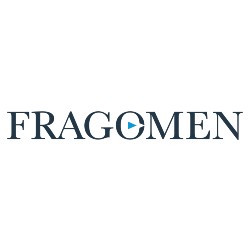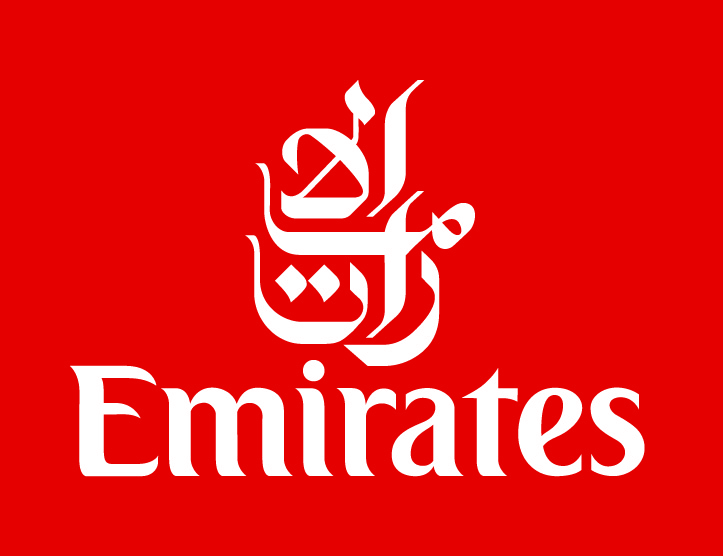IMMIGRATION AND OTHER DEVELOPMENTS IN THE MENA REGION
Date Posted:Tue, 13th Feb 2024

United Arab Emirates
05 January 2024 – Education-Sector Training Program Launched as Part of Emiratization Efforts
The United Arab Emirates has launched a new four-year training program for Emirati nationals seeking job opportunities in the education sector. The program will provide teaching training to Emirati nationals with a bachelor’s degree in education, and administrative and assistant training to individuals with a high school degree. This program – which is open to Emirati nationals registered on the Nafis platform – seeks to ensure that at least 1,000 Emirati nationals find employment each year and is part of broader efforts to achieve Emiratization targets set down by the government.
11 January 2024 – Dubai to Introduce Business Identification Numbers, Consolidated Company Database
Under a new Department of Economy and Tourism initiative called the ‘Dubai Unified License’ (DUL), all Dubai-registered businesses (whether located in free zones or on the mainland) will now be issued with a commercial identification number, with authorities also consolidating company-related information into a single database. The initiative seeks to streamline business processes, enhance efficiency, and attract investment by digitizing and unifying business-related information in Dubai.
11 January 2024 – Companies Achieving Emiratization Growth Rates to Receive Priority Status for Government Tenders
The Ministry of Human Resources and Emiratisation (MOHRE) and the Ministry of Finance (MoF) has introduced a new initiative which gives mainland private sector companies that achieve annual Emiratization growth targets priority status when tendering for government contracts. The annual Emiratization target is currently 2 percent growth. This new initiative ¬comes amid broader efforts to advance Emiratization (a policy which seeks to increase the labor market participation of UAE nationals).
12 January 2024 – Select UAE Pension Authorities Amend Employee Registration Deadlines and Correlative Fines
Effective immediately, the Abu Dhabi Pension Fund has amended the employee registration deadline that employers are required to comply with for all recent Emirati national hires, and the employee deregistration period following the termination of an Emirati national. In addition, the General Pension and Social Security Authority has set out the fine employers may face if they fail to enroll newly employed Emirati national members of the workforce to the fund, within the allocated employee registration deadline.
Following recent changes to the United Arab Emirates pension and social insurance framework, the Abu Dhabi Pension Fund (ADPF) has amended the employee registration deadline that employers are required to comply with for all recent Emirati national hires.
19 January 2024 – Visa Free Travel between UAE Kosovo Forthcoming
Nationals of Kosovo and the United Arab Emirates will soon be able to enter each other’s country visa-free for tourism stays of up to 90 days within any 180-day period.
Individuals travelling for other purposes (including study or work) must continue to obtain a relevant visa in advance. To enter visa free, individuals must have a passport with a minimum of six months validity from the intended date of entry, valid health insurance, and a return or onward ticket.
19 January 2024 – Demographic Diversification Rules Reinstated for Mainland-based Employers
The United Arab Emirates has reinstated a demographic diversification rule requiring companies on the mainland to maintain a range of nationalities in their workforce. Although specific nationality ratios have not been officially announced, the Ministry of Human Resources and Emiratization has stated that companies must currently allocate 20 percent of their available work permit quota to nationalities that are underrepresented in their workforce. This policy, which may undergo further changes in the near future, does not affect employers in the free zones. Employers that do not comply with these rules may not have future foreign national work permit applications approved until an adequate diversification balance has been reached. Furthermore, they may be classified as ‘category 3’ on the country’s company classification scheme (the lowest category on the scheme) – which results in higher government fees for recruiting foreign workers and slower government processing times. Affected employers are advised to review their workforce composition and prepare a long-term strategy regarding foreign worker recruitment. Additionally, these rules may have a significant effect on foreign nationals seeking to change employers in country as these individuals are required to cancel their existing work permit (with their current employer) but then may find themselves unable to obtain a work permit from their new employer if the employer does not meet diversification requirements. Depending on the individual’s allotted grace period for obtaining a new work permit, the individual could end up out-of-status if the delays persist long enough.
30 January 2024 – Implementation of Demographic Diversity Rule Postponed
The government has temporarily postponed enforcement of the demographic diversification rule. The requirement may be reinstated with amendments in the future. We will continue to monitor the situation.
SAUDI ARABIA
5 January 2024 - Professional Verification Scheme Now Applies to Egyptian Nationals
Egyptian foreign nationals seeking employment in Saudi Arabia as a plumber, electrician, welder, automobile mechanic, or carpenter must now pass a theoretical and practical test at an accredited examination center in Egypt as a prerequisite to obtaining a Saudi work visa. It is expected that Egyptian foreign nationals who achieve at least 50 percent on the test will be issued with a certificate (valid for five years) that will allow them to apply for an entry visa to work in Saudi Arabia. This policy is an expansion of Saudi Arabia’s existing Professional Verification scheme, which already applies to nationals from Bangladesh, India, Pakistan, and Sri Lanka. Due to this requirement, affected employers may face increased employee onboarding costs and timeframes, as well as greater challenges in hiring or retaining eligible employees from the affected countries.
10 January 2024 - Several Consular Posts Now Require Monkeypox Testing for Certain Visa Applications
The following Saudi consular posts now require applicants to submit proof of a negative monkeypox test result from an approved medical center as part of any work or residence visa application: Australia, Belgium, Canada, Germany, Lebanon, Malaysia, Netherlands, Poland, Turkey, the United Arab Emirates, and the United States. Some consular posts (such as Canada) now also require such tests as part of applications for other visa types (including student and family visa applications). Furthermore, many consular posts require (such as Germany and the United States) that the test results were issued within 21 days prior to submission of the visa application. It is currently unclear whether individuals will also need to show a recent negative monkeypox test result as a requirement for entering Saudi Arabia. Additionally, it is currently unclear if this new requirement extends to business visit visa applications. Fragomen is conferring with Saudi authorities to confirm the position.
Depending on the country, the results may need to be attested, with such attestation requirements varying across jurisdiction. Some consular posts may require attestation by local health practitioners offices or hospitals; others may allow the use of the legalization process under the Apostille Convention. Affected applicants should contact their Fragomen representative to confirm their country-specific process. This new requirement – which is expected to be introduced in other countries shortly – will increase onboarding time and monetary costs for foreign workers in Saudi Arabia, due to testing-related delays and fees.
15 January 2024 - New Premium Residency Permit Categories Introduced
Saudi Arabia has launched five new categories under its long-term Premium Residency Permit (PRP) scheme, offering self-sponsored long-term residency permits to a wider range of foreign nationals.
Foreign nationals can apply under one of the following categories: special talent (including executives, and healthcare and scientific professionals); gifted individuals in culture, the arts, and sport; investors; entrepreneurs; or real estate owners or investors.
The expansion of the PRP – which is likely to increase the number of highly skilled individuals, entrepreneurs, and investors residing long-term in Saudi Arabia – continues the country’s current trend of seeking to attract and retain foreign investment and talent.
15 January 2024 - Electronic Education Certificate Attestation Platform 'Mosadaqa' Expanded to Sudan
The Saudi Arabia Cultural Attaché has added Sudan to their recently launched electronic attestation platform, Mosadaqa, allowing foreign nationals to attest their Sudanese educational certificates through this platform.
The Mosadaqa platform allows foreign nationals to electronically attest educational certificates from eligible countries. This includes attesting college diplomas (two-year higher education degrees), bachelor’s degrees, higher diplomas (post-graduate diplomas), master’s degrees and PhD degrees.
Through the introduction of the Mosadaqa platform, among other initiatives, Saudi Arabia is seeking to streamline immigration processing and regulate the labor market.
18 January 2024 - Biometrics Requirements Announced for Work Visa Applicants in Mumbai and New Delhi
The Saudi consular post in New Delhi is already requiring applicants to submit biometric information as part of any work visa application, despite official announcements that this requirement would not begin until January 22, 2024. Further, the Saudi consular post in Mumbai announced that it will implement this requirement beginning January 27, 2024 despite earlier stating that the requirement would begin January 15, 2024. It is expected that similar requirements will be introduced in Saudi consular posts in other countries. Given these additional requirements, alongside a large backlog of applications and a limited number of visa centers, applicants should anticipate further delays in the Saudi visa application process. Applicants should also be aware that they may not be able to submit their visa application and register their biometrics on the same day, requiring multiple trips to the consular post.
23 January 2024 - Private Sector Companies with 50 or More Employees Now Required to Offer Student Training Program
As of January 1, 2024, private sector companies with 50 or more employees must now ensure that at least two percent of their full-time employee headcount is comprised of Saudi national university or college students working in a ‘trainee’ capacity. Affected companies must sign a ‘cooperative t raining’ contract with each trainee and disclose the training data through the Qiwa platform. The contract should detail the training program duration, including outlining each training stage, as well as the roles and skills to be developed during the training program. The Ministry of Human Resources and Social Development, which administers the program, has released a comprehensive procedural guide that, among other things, includes a contract template for the hiring of trainees and provides guidance and assistance regarding program requirements (including specifying the types of trainees eligible to participate; identifying the skills to be trained; demarcating the training program stages; and providing completion certificates which are given at the end of the program). Non-compliance with program requirements may result in penalties in accordance with the Ministry of Human Resources and Social Development’s recently issued labor penalty schedule. Through providing practical work experience to young Saudi nationals, this initiative seeks to increase the capacity and competitiveness of the country’s national workforce and labor market.
29 January 2024 - Work Visa Biometrics Requirement at New Delhi Consular Post Implementation Date Delayed
The Saudi consular post in New Delhi has stated that it will only begin requiring applicants to submit biometrics as part of work visa applications beginning January 31, 2024. Previously, this consular post had stated that it would implement such requirements beginning January 22, 2024, and in practice, immigration professionals had observed biometrics being required even earlier, although this practice appears to have stopped.
BAHRAIN
19 January 2024 - Changes to Work Week Proposed
Bahrain’s parliament has proposed that the work week be shifted from the current period of Sunday to Thursday to a new schedule of Monday to Friday. They have also suggested adopting a half day on Friday so that the weekend commences from Friday afternoon and the work week resumes on Monday morning. Currently, the weekend in Bahrain runs from Friday to Saturday.
25 January 2024 - Increased Recruitment of Bahraini Nationals with Disabilities Forthcoming
Public and private companies with 50 or more employees will soon need to ensure that 4% of their workforce is made up of Bahraini nationals who have a disability, up from the previous 2% requirement. Following the Shura Council’s recent approval of the proposed law, the Ministry of Labor is currently converting the proposal into an official legislative decree and is expected to issue further guidance on the law in the near future (including possible penalties for non-compliance). Given this upcoming change in policy, employers will soon need to revise their hiring practices to ensure that they meet the new targets.
QATAR
05 January 2024 - Private Sector Nationalization Law Forthcoming
The government of Qatar has approved a draft law that will implement a nationalization policy for the private sector. This law – which is being reviewed by the country’s Shura council and is expected to be approved in the coming months – will apply to all private sector companies in Qatar and impose “localization percentages” (the percentage of an employer’s workforce that must be made up of Qatari nationals) for certain professions. Further details, including deadlines for compliance, will be released once the law is approved. The policy will also establish financial incentives for Qatari nationals enrolled in private sector institutions; facilitate university studies for Qatari nationals; and ensure Qatari nationals are appointed to leadership roles. Employers of foreign nationals may need to review the composition of their workforce to ensure they comply with these upcoming requirements.
10 January 2024 - Additional Extension of Hayya Card Validity Announced
The validity of existing Hayya Cards has been extended until February 24, 2024. The Ministry of Interior (MOI) of Qatar announced that the validity of the Hayya Card that was used for entry during the 2022 FIFA World Cup has been extended until January 24, 2024. Effective immediately, Hayya Card holders can continue visiting Qatar subject to the following requirements: their passport must be valid for a minimum of three months upon arrival in Qatar; they have proof of a confirmed hotel reservation or accommodation with family or friends approved through the Hayya portal; they have health insurance for the entire duration of stay; and they hold a return ticket. According to the MOI, the Hayya Card extension service is free of charge and allows for multiple entries to the country, as well as use of the e-Gate system for entry and exit via the country’s ports. Hayya Card holders will also be allowed to invite up to three family members or friends to visit Qatar. The Hayya Card was originally introduced in 2022 to serve as fan identification and an entry permit into Qatar during the FIFA World Cup Tournament.
15 January 2024 - New Regulations Implemented for Family Residency, Visit Visas
The Ministry of Interior (MOI) has clarified requirements for principals sponsoring the entry of dependents on family residency or visit visas. For a family residence permit, where the principal works in government or semi-government sectors, they must be given family housing through their employer or maintain a monthly minimum salary of QAR 10,000 (approximately USD 2,750). If the principal works in the private sector under certain categories (such as technical or specialized professions), they must either be given family housing through their employers and maintain a minimum monthly salary of QAR 6,000 (approximately USD 1,650), or, without housing, they must maintain a monthly minimum salary of QAR 10,000 (approximately USD 2,750).
Further, family visit visa applications rules have been clarified. First, principal applicants are required to work in a non-labor profession (specialized or technical professions) and they must maintain a minimum monthly salary of QAR 5,000 (approximately USD 1,373). Additionally, there are no age restrictions for family visit visa dependents and family visa applicants must be a direct relative of the sponsoring applicant (a parent, sibling, sibling-in-law, child, spouse, or parent-in-law, subject to the approval of the MOI). Furthermore, all family visit visa applicants must now be covered by health insurance for the entire duration of the dependent’s visit in Qatar and must provide proof of health insurance as part of their visit visa application. Previously, health insurance was only required for those dependents over the age of 60. The government has not yet confirmed if only Ministry of Public Health-registered insurance packages will be accepted. These clarifications and new rules should help facilitate the entry process for family members of residents.
OMAN
16 January 2024 - Updated Medical Certificate Attestation Guidelines for Employment, Family Residence Visas
Effective immediately, foreign nationals applying for a work or family residence visa no longer need to provide a medical fitness certificate that was authenticated manually in-person at a Ministry of Health office. Instead, applicants now need to authenticate such documents via the Ministry of Health’s electronic portal or in-person at any Sanad office. As a temporary exception, health certificates issued before January 7, 2024, can continue to be attested in-person at the Ministry of Health until January 21, 2024; while from January 22, 2024, no medical fitness certificates attested in this manner (regardless the date of issue) will be accepted for visa purposes.
EGYPT
11 January 2024 - Travel Restrictions for Unaccompanied Minors Announced
Egyptian nationals under the age of 18 traveling internationally from Egypt must now travel with a guardian or otherwise obtain prior approval for unaccompanied travel from the Communication Department of the General Administration of Passports, Immigration and Nationality. Processing timelines for the approval remain uncertain. As an exception, sports-team members below the age of 18 who have obtained approval from the Ministry of Youth and Sports and have special permission from the government may travel without any Communication Department permission. Previously, Egyptian nationals below the age of 18 could travel without any guardian or government approval.
ABOUT FRAGOMEN
Fragomen is the world’s leading single-focus provider of immigration services and support. Our firm is comprised of law practices and immigration consultancies that work together to support our clients across all regions globally. At Fragomen, we leverage our collective immigration experience to offer clients targeted and trusted solutions that help them achieve their local, regional and worldwide business goals.
Fragomen’s team of dedicated immigration professionals has extensive experience in working with multinational businesses, local employers, start-ups and individual investors. We have a deep understanding of the region and maintain strong professional relationships with immigration authorities. Our MENA immigration team is supported on a global basis by over 3,800 immigration professionals in more than 50 offices worldwide. Together, we provide comprehensive immigration support in over 170 countries.
All we do is immigration, a sole focus that makes a considerable difference. Unlike many other providers, all of our thinking, passion and resources are dedicated to improving the immigration experiences of our clients and their employees. We have the track record, region specific experience and know-how to provide you with a streamlined and compliant immigration solution.
Visit our website www.fragomen.com or contact us at middleeast@fragomen.com to learn more about our company and services.











